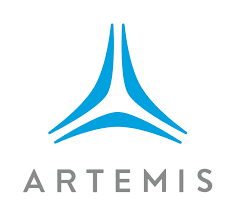 W
WSoftware-defined radio (SDR) is a radio communication system where components that have been traditionally implemented in hardware are instead implemented by means of software on a personal computer or embedded system. While the concept of SDR is not new, the rapidly evolving capabilities of digital electronics render practical many processes which were once only theoretically possible.
 W
WArtemis Networks is a wireless technology company responsible for the software-defined radio technologies pCell and pWave. pCell technology is capable of speeds hundreds of times faster than other technologies under conditions of heavy usage and interference. Its founder and CEO is Steve Perlman.
 W
WDigital enhanced cordless telecommunications , usually known by the acronym DECT, is a standard primarily used for creating cordless telephone systems. It originated in Europe, where it is the universal standard, replacing earlier cordless phone standards, such as 900 MHz CT1 and CT2.
 W
WElectra, formally called the Electra Proximity Link Payload, is a telecommunications package that acts as a communications relay and navigation aid for Mars spacecraft and rovers. The use of such a relay increases the amount of data that can be returned by two to three orders of magnitude.
 W
WEuropean Secure Software-defined Radio (ESSOR) is a planned European Union (EU) Permanent Structured Cooperation project for the development of common technologies for European military software defined radio systems, to guarantee the interoperability and security of voice and data communications between EU forces in joint operations, on a variety of platforms.
 W
WHackRF One is a wide band software defined radio (SDR) half-duplex transceiver created and manufactured by Great Scott Gadgets. Its creator, Michael Ossman, launched a successful KickStarter campaign in 2014 with a first run of the project called HackRF. The hardware and software's open source nature has attracted hackers, amateur radio enthusiasts, and information security practitioners.
 W
WThe OpenHPSDR project dates from 2005 when Phil Covington, Phil Harman, and Bill Tracey combined their separate projects to form the HPSDR group. It is built around a modular concept which encourages experimentation with new techniques and devices without the need to replace the entire set of boards. The project has expanded from the original group, and several additional people have been involved in recent HPSDR module designs.
 W
WUniversal Software Radio Peripheral (USRP) is a range of software-defined radios designed and sold by Ettus Research and its parent company, National Instruments. Developed by a team led by Matt Ettus, the USRP product family is intended to be a comparatively inexpensive hardware platform for software radio, and is commonly used by research labs, universities, and hobbyists.
 W
WEstablished in 1996, the Wireless Innovation Forum is a non-profit "mutual benefit corporation" dedicated to advocating for spectrum innovation and advancing radio technologies that support essential or critical communications worldwide. Forum members bring a broad base of experience in Software Defined Radio, Cognitive Radio and Dynamic Spectrum Access technologies in diverse markets and at all levels of the wireless value chain to address emerging wireless communications requirements. The forum acts as a venue for its members to collaborate to achieve these objectives.